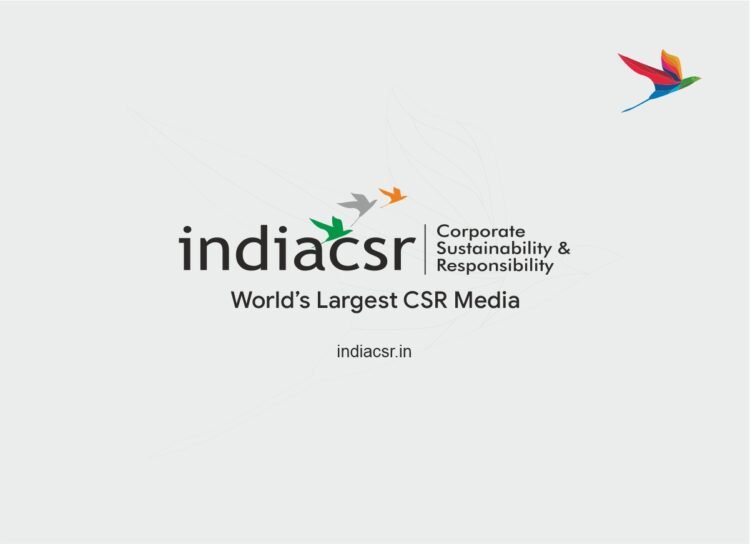The Companies Act 2013 heralds the dawn of a new Era in Corporate Governance
By Bhavna Sethi
With the Companies Act, 2013 now in place and the CSR mandate; CSR has now been given its rightful place in the Company’s core strategy. It is estimated that around 8,000 companies would fall under the ambit of the ACT and this mandate would translate into an estimated CSR spending of Rs 12,000-15,000 crore annually. In order to maximise the impact of “their” CSR, Indian business houses need to systematically ideate and implement robust CSR strategies with potential for large-scale social and economic impact.
Hitherto, corporate social responsibility and sustainability strategies in India have been marginalized and primarily viewed as ‘philanthropic acts’ in the operative Business Environment.
The business imperatives of a corporate usually dictate their CSR interventions depending upon their reliance on key natural and human resources they impact. But today the focus is on sustaining interventions to maintain the delicate socio-economic dynamics in the operative environment.
“Reputation can be defined as ‘a stakeholder’s overall evaluation of a company over time,’ this evaluation is made up from the stakeholder’s experience of the visible behavior of the company, as well as the images based on the company’s communication and in addition its symbolism in comparison with its major competitors (Gotsi & Wilson, 2001).”
What factors make up a company’s reputation? Key drivers of a good reputation include – vision and leadership, products and services, financial performance, employee satisfaction, social and environmental responsibility and emotional appeal. These facts may change over time, reflecting changes in society in general and business in particular. Yet, it’s important to remember that even if the drivers of reputation are in place, a company’s reputation depends on how stakeholders perceive the different aspects of its performance and behavior.
Also Read: CSR Enhances the Brand Value
Corporate Social Responsibility (CSR) or whatever you want to call it – responsible business practice, ethical business, giving back – is increasingly important in building an Organization’s Reputation as a valued and respected part of the community in which you operate. Therefore, CSR is about being socially proactive and demonstrating the values of your organization within your community, in an ethical and sustainable manner. Thereby building Reputation Capital; which can effectively be harnessed in securing most favorable industry positioning, garnering effective share of voice and most essentially as a strategic tool in times of crisis management.
Today, companies are waking up to the realization that Non-financial risks can negatively impact their bottom lines. These non-financial risks arise due to disturbances, exploitation, imbalances or degradation of resources in their immediate operative environment, caused due to their own unrelenting commercial pursuits. Their own negligence and hence a reckoning that it could be avoidable by timely pro-active engagement of Stakeholder Groups and timely intervention to diffuse the very symptoms of such anxiety.
CSR today can be effectively used as a Strategic Facilitator to effectively manage, mitigate and avert Business Risks and thereby be a champion of Reputation Management. CSR is the new cornerstone in the path of the new imperatives of Inclusive growth and sustainable development across thresholds in India. CSR initiatives, stakeholder management, cohesive communication strategies with built in impact assessment, monitoring and feedback mechanisms can be used effectively to pre-empt, identify, mitigate or avert Risks. Just as the most important element for a successful marketing or advertising initiative lies in its timing, likewise the timing of a CSR initiative is quintessential to the object of achieving the desired impact. The impact could be designed to be positive or neutral depending on the business exigency.
Identifying the Risks – Risks could originate from a company’s operations itself or due to certain external environmental, social, cultural, geographic, demographic or political factors. An awareness of these factors can be effectively weaved into the CSR programs and specific interventions should be designed to neutralize, stabilize or obliterate such prospective disruptions. The CSR function today needs to be very dynamic and pro-active to mitigate such Business Risks therefore progressive organizations in India need to be three dimensionally committed to people, profit and the planet.
Companies can improve their reputation and reduce the financial impact of negative publicity through strategic social investments. Five factors facilitate CSR to be leveraged for insurance: Internal stakeholder buy in, resource allocation, sustained commitment, modesty in CSR engagement and support for causes aligned to the company’s core business imperatives. These strategies help managers enhance reputation, augment bottom lines, gain consumer goodwill and instill a sense of pride in internal stakeholders like the employees.
Also Read: Investment is Must in Exploration of Natural Resources to Eradicate Poverty & Unemployment
Building CSR strategies in the current economic downturn
To keep CSR as a differentiator and maximize its business benefits while tackling similar issues, organizations will need to design their own strategic ‘CSR Pathways’ consistent with their core values, and leveraging their unique expertise. 21st century CSR needs to be built in overall business strategies, processes, performance metrics and organizational structures. The first step in this journey is undoubtedly setting the tone at the top. Experience shows that CEOs who
strongly commit to CSR and set the sustainability agenda in their organizations have the highest chance of seeing their organization ‘harvest’ business benefits and the organization is perceived to be a good corporate citizen.
In the current economic down turn, organizations willing to build and preserve their corporate reputation need to start looking now at how, they can address changing stakeholder concerns through compelling CSR in a difficult economic environment. Adaptations to CSR strategies made today and their potential to meet emerging stakeholder concerns will certainly make or break the corporate reputations of tomorrow. As organizations now engage with consumers, NGOs, traditional and social media and seek to become part of everyone’s life, they need to be seen as genuinely ‘good’ corporate citizens. In other words, as the proximity between a company and its stakeholder’s increases, stakeholder expectations regarding this company are rising in the same proportions. Organizations of the 21st century will therefore have to build sustained positive relationships with their stakeholders on the basis of consistent CSR strategies and interventions.
CSR Checklist for strategic risk mitigation and enhancing organizational reputation;
- CSR design: the glocal (think global –act local) phenomenon works here i.e. CSR interventions should be directed to mitigate local risk factors arising due to negative impacts of the business operation; albeit, the rationale for CSR must be institutionalized through-out the company, and an intrinsic part of the organizational culture; which is manifested through broad based CSR pursuits across verticals.
- CSR Facilitators: CSR professionals fulfill facilitating roles in terms of guiding and supporting different verticals to support the fulfillment of their KRA’s while building the organizations overall competencies in respect of Business Responsibility and their Reputation capital.
- CSR vision, strategy and alignment – the overall CSR dimension should take into account the business risks of the operative environment and proactively engage with the organizations stakeholders – e. resource allocations should be directed towards maintaining a balance between the internal and external, long term vs. short term, related CSR and unrelated CSR, organizational objectives and corporate citizenship, sustainable development and corporate goodwill
- CSR Models- The choice depends on the organizations business imperatives however CSR interventions could be direct viz. community outreach initiatives or they could be in partnerships viz. with NGO’s or Social enterprises, Govt. programs, industry CSR interventions, SHG’s, Co-operatives. It is important to remember each model has its innate advantages and disadvantages and the choice would depend upon the resources (capital + manpower), experiences and skill sets required for the desired interventions.
- Systematic and Periodic Assessment of CSR Pursuits and desired Impacts
- CSR Reporting & Communication – CSR and Sustainability Reports as an instrument to Manage Reputation; therefore should be the essence of a robust communication strategy.
Numerous studies support the notion that CSR can impact companies’ reputation positively, helping them improve their reputation with stakeholders and be more resilient in times of crisis. Still, companies need to work hard to make sure stakeholders are aware of their efforts and that these efforts are sincere. Only then the promise of CSR-Reputation relationships can be fully realized. Therefore Strategic CSR acts as insurance for reputation, which can positively impact an organizations financial performance while also maintaining the delicate balance between the Societal and business interests of the company.
Conclusion
Globally, strategic CSR pursuits are an important element of risk management and socially inclusive business practices and are important differentiators which give an organization the competitive advantage. Companies can improve their reputation and reduce the financial impact of negative publicity through strategic social investments. Incorporating CSR within the operational risk framework is an ideal way of devising mutually beneficial solutions for the company as well as society. Therefore the reckoning is that CSR activities can indeed bring tangible benefits if companies dare to dream and look beyond their P/L statement; after all there’s nothing wrong with it being a win-win situation with the company and the society benefiting equally!
About the Author
Bhavna Sethi is a CSR practitioner. She is a corporate professional with over 15 years of work experience in UK and India, across industries and domains especially in the field of Corporate Affairs, Reputation Management, Business Sustainability and Corporate Social Responsibility. She has unique expertise in the area of Advocacy and Outreach with respect to Businesses as well as Societal Pursuits.





















